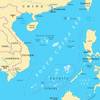U.K. Government revises Finance Bill 2012 to favor UK Shipowning Companies
International accountant and shipping adviser Moore Stephens has welcomed the UK government’s decision to minimize the effect of new rules in Finance Bill 2012 which resulted in a potentially serious trap for existing UK shipowners entering tonnage tax.
Finance Bill 2012 originally extended some anti-avoidance rules relating to leasing companies, so that they applied to existing UK shipowning companies chartering out ships which enter UK tonnage tax. But the rules have now been changed following representations made by Moore Stephens and by other shipping industry representatives.
Moore Stephens tax partner Sue Bill says, “The rules apply where, very broadly, at least half the value of the company’s plant and machinery is chartered out or at least half its income in the previous twelve months is from the chartering out of plant and machinery, including ships, even where the chartering is to another group company.
“As originally drafted, the proposed new rules could have applied where a UK shipowning company in a tonnage tax group entered tonnage tax because it started to carry on activities which qualified for tonnage tax, for example because it owned a vessel which ceased to be chartered out on a long-term bareboat charter, or a vessel that started to be used ‘at sea’, or because the company’s ships started to be strategically and commercially managed in the UK. The rules also applied in some circumstances where a company was acquired by a UK tonnage tax group.
“Broadly speaking, if the rules apply, the company will be taxed on an amount equal to the excess of the net book value of its assets over their tax written-down value. It may be possible to reduce this taxable income using tax losses and/or capital allowances. Clearly, this could result in a very large tax liability. Once the company has gone into tonnage tax, the normal transitional rules will apply whereby a balancing charge can arise if any vessels held on entry into tonnage tax are sold within seven years. This could mean there is effectively a double charge to tax.
“The rules have now been amended so that they apply only where there is a change in ownership of the company chartering out plant and machinery. They will still apply where a company leasing out plant and machinery becomes a member of a UK tonnage tax group, whether or not the company goes into tonnage tax at the same time. A company will become a member of a UK tonnage tax group if, broadly speaking, it comes under common control with companies in a UK tonnage tax group."
Although the effect of the new rules has been significantly reduced, care will need to be taken where a company comes under common control with companies in a UK tonnage tax group.
Sue Bill concludes, “It was unfortunate that the Finance Bill 2012 originally introduced legislation which posed a potentially serious threat for some UK shipowners going into tonnage tax. The government has however listened to representations and acted quickly to minimize the effect of the proposed new rules. This seems to be a sign of the UK government’s commitment to ensuring as far as possible the stability of the UK tonnage tax regime.”


















